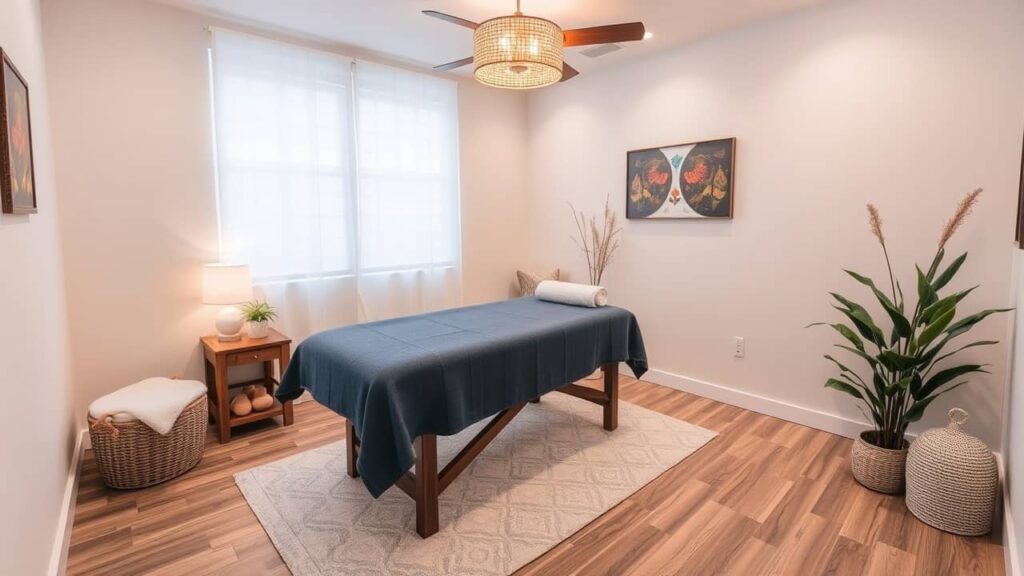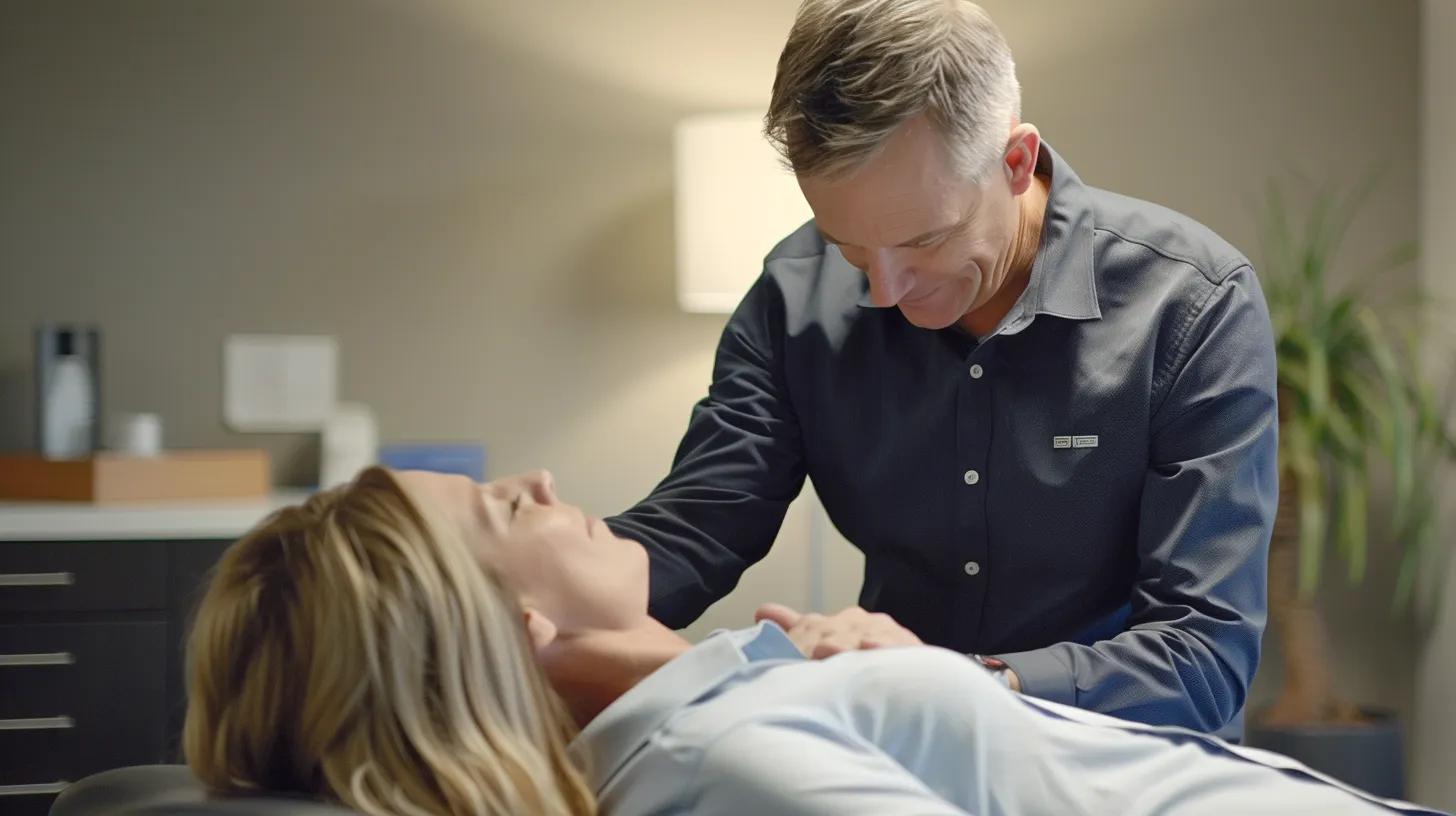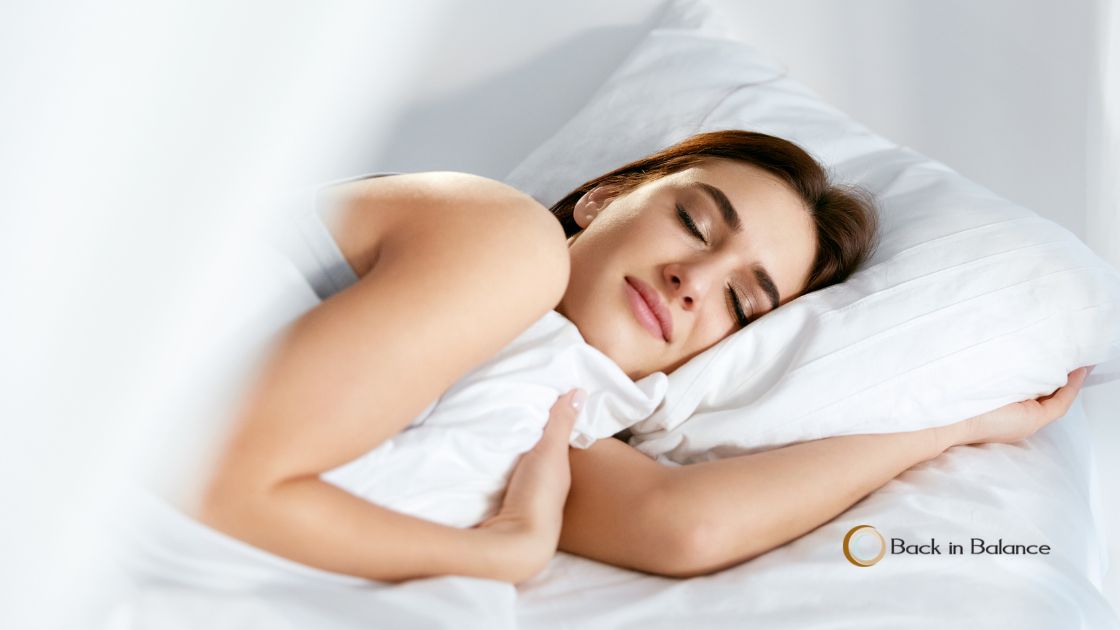Massage therapy is more than just a luxury. It’s a holistic approach to health and wellness.
Highly trained professionals offer a range of specialized services. These are tailored to individual needs and health goals.
From TMJ Massage to Prenatal Massage, Swedish Massage, Postnatal Massage, and Sports Massage, the options are diverse. Each modality addresses different health concerns and preferences.
Choosing a certified massage therapist is crucial. They have extensive training in anatomy and massage techniques. This ensures you receive the best care possible.
This guide will delve into the world of professional massage therapy. It will highlight the benefits, techniques, and what to expect from your sessions.
Whether you’re seeking relief from discomfort, stress, or looking to enhance your overall well-being, this guide is for you. Let’s explore the transformative power of massage therapy services from highly trained professionals.
The Importance of Professional Massage Therapy
Professional massage therapy plays a vital role in promoting health. It’s recognized for its ability to relieve stress and enhance relaxation. These benefits can significantly improve your quality of life.
Highly trained therapists bring expertise to each session. Their knowledge allows them to customize treatments. This ensures that your specific health concerns are effectively addressed.
Massage therapy is not just about immediate relief. Regular sessions can lead to long-term health improvements. These include better sleep, reduced muscle tension, and improved circulation.
Certified professionals use various techniques to achieve desired outcomes. They understand how different modalities affect the body. This expertise helps in delivering optimal results.
Safety and effectiveness are paramount in massage therapy. Licensed therapists adhere to strict professional standards. Their training ensures they are well-versed in anatomy and are able to prevent any potential harm.
Massage therapy’s holistic approach also supports mental health. Reducing anxiety and alleviating depression symptoms can be part of its benefits. This dual focus on mind and body makes it a valuable health resource.

Understanding Different Massage Modalities
Massage therapy encompasses a variety of modalities, each serving a unique purpose. These modalities are designed to address specific health concerns and preferences.
Knowing what type of massage suits your needs is crucial. This understanding can maximize the benefits you receive. When selecting a massage, consider your health goals and personal preferences.
Highly trained professionals are skilled in various techniques. They can help guide you in choosing the right modality. This ensures you receive a treatment that best meets your needs.
Here are some popular types of massage modalities:
- TMJ Massage
- Prenatal Massage
- Swedish Massage
- Postnatal Massage
- Sports Massage
Each of these modalities is specialized. They target different areas and provide distinct benefits. Whether seeking relaxation or relief from pain, there’s a massage for you.
Seeking professional guidance is always recommended. A certified therapist can assess your condition. They’ll tailor a massage plan that aligns with your health objectives.
Massage therapy sessions can combine different techniques. This can offer a more comprehensive approach to treatment. Customizing your massage can lead to an enhanced experience.
Regular sessions can amplify the benefits over time. Consistency is key to achieving and maintaining wellness. Incorporating massage therapy into your routine supports overall health.
TMJ Massage
TMJ Massage is specifically for addressing issues related to the temporomandibular joint. This type of massage can help alleviate jaw pain and improve mobility. Skilled therapists target specific muscles to relieve tension around the jaw.
The benefits of TMJ Massage extend beyond the jaw itself. Clients often experience fewer headaches and an overall sense of relaxation. This modality can significantly enhance your day-to-day comfort.
It’s particularly beneficial for people who clench or grind their teeth. Regular TMJ Massage may lead to long-term relief from these habits. An experienced massage therapist can offer valuable insights and customized techniques.
Prenatal Massage
Prenatal Massage is designed to support expecting mothers. As the body undergoes various changes during pregnancy, tailored massage can provide relief. It focuses on common discomforts like back pain and swollen limbs.
Highly trained therapists are aware of the unique needs during pregnancy. They ensure a safe and comfortable experience for both mother and baby. This massage helps in easing physical and emotional stress.
Beyond relief, Prenatal Massage may also aid in labor preparation. Regular sessions can reduce anxiety associated with delivery. Mothers-to-be can enjoy a sense of calm and well-being through massage.
Swedish Massage
Swedish Massage is one of the most popular and accessible massage types. Known for its gentle and rhythmic strokes, it provides deep relaxation. It’s an excellent choice for those looking to relieve tension and stress.
Techniques such as effleurage and petrissage are used in Swedish Massage. These help to improve circulation and enhance relaxation. A session often leaves clients feeling refreshed and invigorated.
The benefits extend to mental health as well. Regular Swedish Massage can reduce anxiety and promote better sleep. It’s an effective option for improving overall well-being.
Postnatal Massage
Postnatal Massage focuses on supporting recovery after childbirth. It addresses the physical stress and changes a new mother’s body undergoes. Massage can be an essential part of healing after delivery.
This massage helps reduce swelling and relieve muscle soreness. It also aids in restoring the body to its pre-pregnancy state. Mothers find that it helps in managing postpartum symptoms.
Emotionally, Postnatal Massage can offer respite. It provides time for relaxation and self-care amidst new responsibilities. It’s an opportunity to reconnect with your body and health.
Sports Massage
Sports Massage is tailored for athletes and physically active individuals. It targets muscle groups engaged in specific sports activities. This massage focuses on both injury prevention and performance enhancement.
Through deep tissue techniques, Sports Massage improves flexibility and muscle function. It can aid in faster recovery after intense physical activities. The targeted approach ensures the muscles are well-maintained and ready for action.
In addition to physical benefits, it supports mental clarity and focus. Athletes can use massage as a tool for preparation and recovery. Regular sessions help maintain peak physical condition.
Benefits of Massage Therapy From Highly Trained Professionals
Massage therapy provides a wealth of benefits that go beyond simple relaxation. Highly trained professionals deliver personalized services that cater to individual health needs and goals.
One of the primary benefits is stress relief. Massage reduces cortisol levels and boosts endorphins, promoting a sense of well-being. It helps create a balance between body and mind.
Besides mental benefits, massage offers physical advantages as well. It enhances circulation, leading to improved nutrient delivery throughout the body. This process supports quicker healing and recovery.
Individuals suffering from chronic pain can find relief through regular massage therapy. Professionals use targeted techniques to reduce tension and discomfort. This can decrease dependency on pain medications over time.
Incorporating massage into your wellness routine can also improve posture and flexibility. It aligns the body correctly, reducing strain on muscles and joints. This often results in better overall mobility.
Moreover, massage therapy can provide significant benefits for specific conditions. Here are a few key advantages:
- Improved sleep quality
- Enhanced immune function
- Reduction in headache frequency
- Better digestion
- Increased focus and mental clarity
Massage therapy is also integral for athletes. It aids in muscle recovery and enhances performance. Regular sessions can reduce the risk of injuries, making it an essential component of any fitness regimen.
Finally, seeking services from trained professionals ensures safety and efficacy. Certified therapists possess in-depth knowledge of anatomy and techniques. This expertise maximizes the benefits you receive during each session, ensuring a holistic healing experience.

Choosing the Right Massage Therapist
Selecting the right massage therapist is crucial for a satisfying experience. Start by researching certified professionals in your area. Certification ensures they have completed the necessary training in anatomy and massage techniques.
Consider the therapist’s experience in specific modalities that match your needs. Whether you need TMJ massage or prenatal massage, finding someone skilled in that technique is important. It ensures you receive targeted care.
Testimonials and reviews can offer valuable insights. Hearing about other clients’ experiences provides a glimpse into the therapist’s approach and effectiveness. Don’t hesitate to ask for references or recommendations.
Personal comfort and communication are also key factors. You should feel at ease discussing your health concerns and preferences with your therapist. Effective communication can enhance the overall session outcome.
Finally, consider scheduling an initial consultation. Meeting the therapist in person helps assess compatibility and professionalism. This step can ensure you make an informed choice tailored to your wellness goals.
Preparing for Your Massage Session
Preparation can enhance your massage therapy experience. Begin by hydrating well before your session. Drinking water helps your muscles respond better to the therapy.
Wear comfortable clothing to facilitate easy changing. Loose-fitting attire allows you to relax both before and after the massage. This small step can make a significant difference.
Arrive a few minutes early to allow yourself to unwind. A calm mind and relaxed body enhance the benefits of massage. Inform your therapist of any discomfort to tailor the session to your needs.
What to Expect During and After a Massage Therapy Session
During your massage session, relaxation is key. Your therapist will guide you through deep breathing exercises to help ease tension. This ensures your mind and body are aligned for optimal results.
Different techniques will be used based on your specific needs. You’ll feel various pressures and rhythms as the therapist works on different muscle groups. It’s essential to communicate how the pressure feels to you.
After the massage, you might feel a sense of lightness. Your muscles may be more relaxed, and stress levels lowered. Some people also notice increased flexibility and improved circulation.
It’s common to experience a calming effect post-massage. You may feel more grounded and in tune with your body. Take this time to rest and enjoy the serenity.
Hydration remains crucial after the session. Drinking water helps in flushing out toxins released during the massage. It supports the body in maintaining its newfound balance.
Maintaining Wellness: The Role of Regular Massage Therapy
Consistent massage therapy plays a vital role in sustaining overall health. Regular sessions contribute to ongoing muscle relaxation and reduced tension. They act as maintenance for the body’s well-being.
Incorporating routine massage supports your wellness journey significantly. It aids in better sleep patterns and improved circulation over time. This practice reinforces the body’s natural healing processes.
For long-term benefits, having a set schedule for massages is key. This regularity helps manage stress levels and supports optimal immune function. Consider massages as a fundamental part of your self-care regimen.
Conclusion: Integrating Massage Therapy Into Your Health Regimen
Incorporating massage therapy into your health routine can offer numerous benefits. It complements other wellness activities like exercise and nutrition, ensuring a holistic approach. Consider it a valuable addition to your self-care plan.
With guidance from highly trained professionals, massage therapy can target specific health objectives. Whether for relaxation, recovery, or pain management, it aligns with personal wellness goals. This tailored approach elevates the overall quality of life.
Making massage therapy a regular practice supports sustained physical and mental health improvements. By integrating it into your routine, you embrace an essential tool for balanced living. Start prioritizing wellness today, book a massage therapy session at Back in Balance in Westboro, Ottawa.
## Frequently Asked Questions (FAQ)
1. How often should I get a massage?
The frequency of massage therapy sessions depends on your individual needs and goals. For general wellness, a monthly session may suffice, while athletes or those with specific issues might benefit from weekly or bi-weekly appointments.
2. What should I do if I feel discomfort during the massage?
It’s essential to communicate with your therapist if you experience any discomfort. They can adjust the pressure or technique to ensure your comfort and enhance the effectiveness of the session.
3. Can massage therapy help with specific conditions?
Yes, massage therapy can be beneficial for various conditions, including chronic pain, stress, anxiety, and muscle tension. Always consult with your healthcare provider to determine if massage therapy is appropriate for your specific health concerns.
4. What should I wear to a massage session?
Wear comfortable, loose-fitting clothing that allows for easy movement. You may also be provided with a gown or draping during the session for your comfort and privacy.
5. Is it normal to feel sore after a massage?
Some people may experience mild soreness after a massage, especially if they are not accustomed to regular therapy. This is typically temporary and should subside within a day or two. Staying hydrated can help alleviate soreness.
6. How can I maximize the benefits of my massage therapy?
To maximize the benefits, arrive well-hydrated, communicate openly with your therapist about your needs, and consider incorporating regular sessions into your wellness routine. Following up with self-care practices, such as stretching and hydration, can also enhance the effects of your massage.
7. Are there any contraindications for massage therapy?
Certain conditions may require caution or avoidance of massage therapy, such as severe osteoporosis, recent surgeries, or specific skin conditions. Always consult with your healthcare provider before starting massage therapy, especially if you have underlying health issues.




